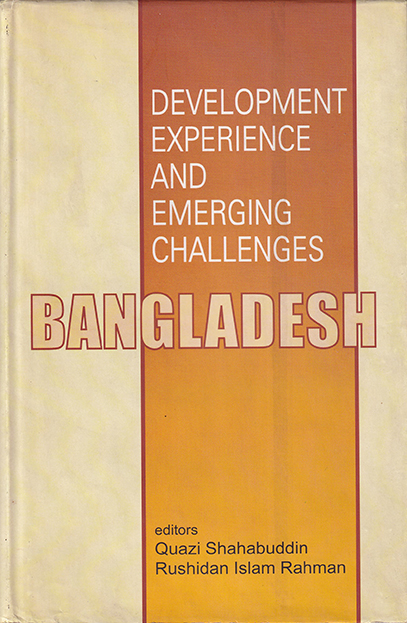
- Shop
- Development Experience and Emerging Challanges
Development Experience and Emerging Challanges
Bangladesh
https://uplbooks.com/shop/9789848815038-development-experience-and-emerging-challanges-8264 https://uplbooks.com/web/image/product.template/8264/image_1920?unique=3d813f3
| Language: English |
Tags :
Book Info
There was widespread pessimism about the development prospects of Bangladesh during the period following independence. Contrary to the prevailing concerns, however, Bangladesh has achieved considerable success and performed well in several areas of development. Improvements in human development have been particularly remarkable. The economy has also moved to a higher growth path over the last two decades. Not only economic growth has picked up, but it has been less volatile and more stable, compared to most South and East Asian countries. Perhaps this has led many to believe that Bangladesh can realize its growth potential so as to join the ranks of middle-income countries within a decade or so. The transition to the high-growth regime, however, has been accompanied by worsening income distribution over time. This obviously raises serious concerns about the quality of growth in terms of the rate of poverty reduction, degree of income inequality and generation of productive employment. What kind of economic growth is Bangladesh attaining? Has the growth process been sufficiently broad-based and inclusive? How to accelerate the rate of economic growth and achieve further improvement in human development? An international conference was organized by BIDS in December 2007 on the occasion of its Golden Jubilee Celebration. The broad theme of the conference was ‘Development prospects of Bangladesh: Emerging challenges’, in which some of the questions raised above were addressed. A number of renowned national and international experts, who were closely associated with BIDS in the past, participated in the conference. A selection of papers presented at the conference and the proceedings of the panel discussion have been published in this volume. It is expected that the ideas presented in the papers and the engaging intellectual debate on development experience, emerging challenges and policy options for the development of Bangladesh will be useful to a wide audience, both academicians and development practitioners alike.

Quazi Shahabuddin
Quazi Shahabuddin is former Director General, Bangladesh Institute of Development Studies.

Rushidan Islam Rahman
Dr. Rushidan Islam Rahman is a Research Director at the Bangladesh Institute of Development Studies. Before joining the BIDS, she taught economics at Jahangirnagar University. She is currently a Member of the Board of Directors, at Bangladesh Bank. She has obtained her M.A. in Development Economics from the University of Sussex, England and Ph.D. from the Australian National University. She has published books, research monographs and articles on labour market issues, microfinance, agriculture and rural development, empowerment of women, skill development etc. She has served as a member of many national policy making bodies and advisory committees including “Panel of Economists” for Five Year Plans, the National Wage and Productivity Commission, etc.


